
A year ago, together with a band of like-minded helpers, we built a great big show garden at the RHS Hampton Court Palace Garden Festival. Perhaps 'built' is the wrong verb, 'plant' is what we did. The garden was all about the plants. It was meant to illustrate the ethos of choosing plants that are going to thrive in the situation you have.
Gardens are not the same as nature, but studying nature, learning lessons from what grows where and in what conditions, illuminates the way forward for us gardeners. To that end, the garden was divided into different areas, each one a reference to a specific habitat that would inform plant choices in a garden situation.
In real life the chances of having six different habitat types in one garden are pretty remote, but this was a show garden and an opportunity to present six different sets of conditions that visitors could identify with.
The difference between nature and gardening is cultivation. If we impose our will on our plot regardless of the growing conditions, we're unlikely to have a happy garden. Evolution has decreed what will thrive where. Over millions of years, plants and their environments have developed side by side, and plants have found ways of coping so they can successfully reproduce and keep their line going. That is the primary purpose of all forms of life to continue to exist.
To this end, plants have developed myriad means of adapting to and moving with their environment. Just look at the prickles of a rose - ideal for deterring hungry herbivores and simultaneously affording 'crampons' to assist in climbing towards the sun. Or consider the tough glaucous leaves of a sea kale, their texture and undulations coping with sea spray and sun, while the long tap root thrusts down among the shingle, both to help the plant hang on in times of storm and tempest and to draw up nutrients and fresh water from the depths below.
この記事は BBC Gardeners World の July 2024 版に掲載されています。
7 日間の Magzter GOLD 無料トライアルを開始して、何千もの厳選されたプレミアム ストーリー、9,000 以上の雑誌や新聞にアクセスしてください。
すでに購読者です ? サインイン
この記事は BBC Gardeners World の July 2024 版に掲載されています。
7 日間の Magzter GOLD 無料トライアルを開始して、何千もの厳選されたプレミアム ストーリー、9,000 以上の雑誌や新聞にアクセスしてください。
すでに購読者です? サインイン

A new plot for tasty crops
Taking on a new allotment needn't be hard work. By simply following a few easy tips you can have bumper crops in no time, just like Alessandro Vitale

We love July
July is an island floating between the joy of June and the slightly fatigued month of August. It's a grown-up month: the year has shrugged off its adolescent exuberances, the weather is (hopefully) warm enough for ice cream to be one of your five a day, the sea should be swimmable without (too much) danger of hypothermia and thoughts will be of holiday shenanigans and family barbecues. School's out this month, the next tranche of glorious summer colour is washing across our borders and it's my birthday. Lots of reasons to give three rousing cheers for July!
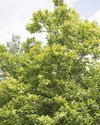
YOUR PRUNING MONTH
Now, at the height of summer, Frances Tophill shows how to boost your plants' health and productivity with a timely cut

Hassle-free harvests
Flowers are out in abundance this month and for Jack Wallington, many of these blooms make delicious, low-effort pickings
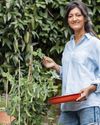
Bite-sized bounties
Glorious doorstep harvests can easily turn into gluts, so let Rukmini Iyer's recipes help you savour every last bit
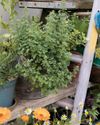
Upcycled outdoor living
Create unique and stylish garden features for minimal cost using reclaimed materials and simple DIY skills. Helen Riches shares four step-by-step projects and more inspiring eco tips

Secrets of a COLOURFUL GARDEN
Buildings and landscapes can play a vital role in supercharging your space, as Nick Bailey demonstrates

Greening up a city balcony
Looking for sustainable, small-space gardening ideas? Take inspiration from Oliver Hymans' transformed balcony garden in north-east London - now a lush, green haven for humans and wildlife
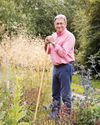
The dry and mighty garden
As we adapt our gardens to a more volatile climate, Alan Titchmarsh reveals how to create a drought-tolerant plot and picks his top plant performers
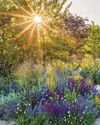
Nature knows best
Carol Klein explains how to choose plants for specific growing conditions, based on what has naturally adapted to thrive there